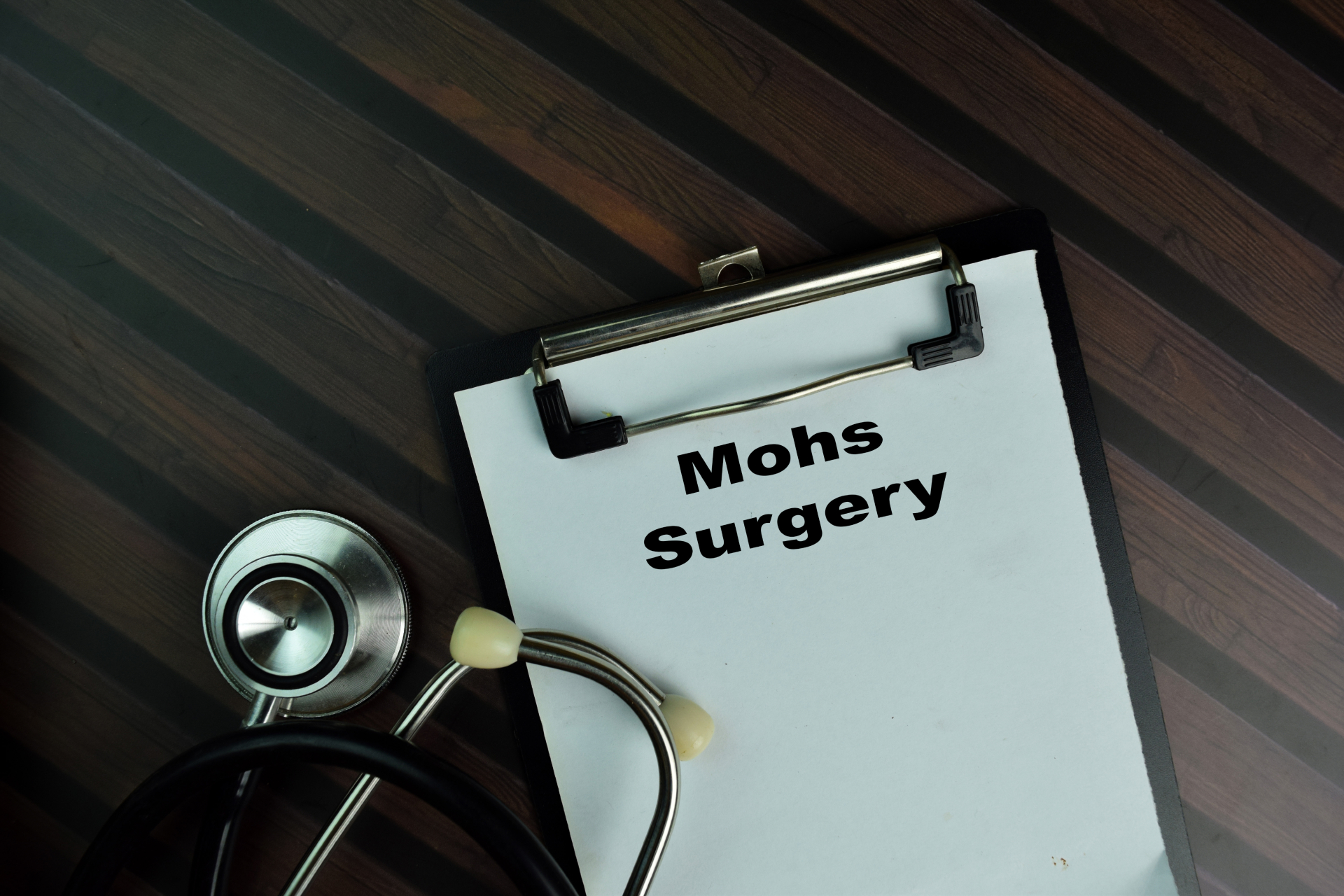How Do I Prepare For Mohs Surgery?

Be sure to fill any antibiotic or anti-anxiety prescriptions before your surgery as these medications will be needed on the day of surgery. Follow all medication instructions. If given anti-anxiety medication, remember to bring the bottle to your surgery appointment and not to take any before arriving at the office, unless you have specifically been instructed that it is ok.
Unless prescribed by a physician, do not take any aspirin for 2 weeks before and 2 weeks after your surgery. If you are unsure whether or not to stop your aspirin, discuss it with Dr. Basak.
Continue to take all prescription blood thinning medication unless instructed to discontinue it by Dr. Basak, your prescribing physician, or a collaborating surgeon doing an outside closure.
Blood thinning medications include (this is not an exhaustive list; if you are unsure if you are on a blood thinner, discuss with Dr. Basak):
- apixaban (Eliquis)
- argatroban (Acova)
- bivalirudin (Angiomax)
- dabigatran (Pradaxa)
- dalteparin (Fragmin)
- desirudin (Iprivask)
- edoxaban (Lixiana, Savaysa)
- enoxaparin (Lovenox)
- fondaparinux (Arixtra)
- heparin (Hep-Lock)
- rivaroxaban (Xarelto)
- warfarin (Coumadin, Jantoven)
In the vast majority of circumstances, the risk for significant bleeding during Mohs surgery is much less than the risk for having a complication arising from stopping your blood thinner (such as stroke, heart attack, blood clot in the lung, etc.). Although bruising for patients on blood thinners may temporarily be more dramatic, this is a minor, temporary inconvenience compared to recovery from a stroke. The following supplements can increase risk of bleeding and should be stopped 2 weeks before surgery:
- Aloe
- Chamomile
- Cranberry
- Evening Primrose
- Feverfew
- Fishoil
- Flaxseed
- Garlic
- Ginger
- Ginko
- Grapefruit
- Green Tea
- Meadowsweet
- Oregano
- Red Clover
- Turmeric
- White Willow
What Supplies Will I Need?
In general, the following list of supplies will be necessary regardless of the repair type that is done:
- New jar of vaseline or Aquaphor ointment
- Clean Q-tips
- Package of gauze squares
- Tape:
- Retention tape such as Hypafix works best and can be purchased at amazon.com
- Nexcare sensitive skin tape is an alternative
- Non-adherent pad (e.g. Telfa)
- Large band-aids are also acceptable if they fully cover the incision. Then no additional tape or pads are needed. However, sometimes the adhesive is irritating after more than 2-3 days.
- For surgery on the arm or leg: Coband, CoFlex, ACE wrap or other stretchy disposable elastic wrap.
- For surgery on the scalp: wide cloth headband, wig cap, or tight-fitting ski cap to assist with holding bandage in place.
- For patients with CPAP machine and surgery on the nose: consider getting Nasal Dilator (e.g. Turbine Nasal Dilator, available on Amazon.com)
Do I Need a Driver?
It depends upon your surgery location and whether or not you take anti-anxiety medication during the surgery. A driver is required if you are having surgery around the eye, eyelid, or upper nose because the bandage post-operatively will significantly interfere with vision. Often the eye is completely patched shut. If you take anti-anxiety medication during the procedure, you will also need a driver as this otherwise constitutes driving under the influence. You might need a driver if you depend on glasses and have surgery on the ear or nose, as large bandages in these locations will likely interfere with the proper fit of your glasses. If in doubt, get a driver. We also recommend drivers for patients with large cancers because these can be unexpectedly tiring after a long day of removal and repair, although technically there is no reason why you cannot drive home (barring one of the reasons listed above).
Can I Eat Before Surgery?
Yes. Patients only need to stop eating the night before surgery IF they are having their repair done under general anesthesia with an outside surgeon on the same day as their Mohs surgery. In this scenario, the outside surgeon will provide NPO (nil per os; ie, when to stop eating) instructions.
You can also eat while waiting for results between Mohs stages. We have some light snacks and beverages in the office, but you are welcome to bring along a packed lunch or have a family member run out and grab you a bite to eat if you have a particularly stubborn skin cancer. We have a microwave, Keurig, and refrigerator available for patient use.
How Do I Prepare on the Day of Surgery?
- Bring something to do to entertain yourself: books, work, ipad, kindle, laptop.
- Bring snacks, drinks, and a packed lunch, if desired.
- Don’t forget chargers for your phone and other electronics.
- Wear old and worn out clothes that are comfortable and that you wouldn’t mind potentially getting blood on.
- Don’t schedule anything else on the day of Mohs surgery. While you may be fortunate and only need 1 stage to clear your cancer, Dr. Basak has no way of predicting this ahead of time and cannot guarantee that you will be done at a certain time. There is a lot of “hurry up and wait” as tissue is collected, processed, and evaluated under the microscope.
- For surgery on the hand, we recommend that you remove rings as swelling is likely and you will be more comfortable.
- For surgery on the face, ears, or nose, we recommend removing any jewelry and NO MAKE-UP.
